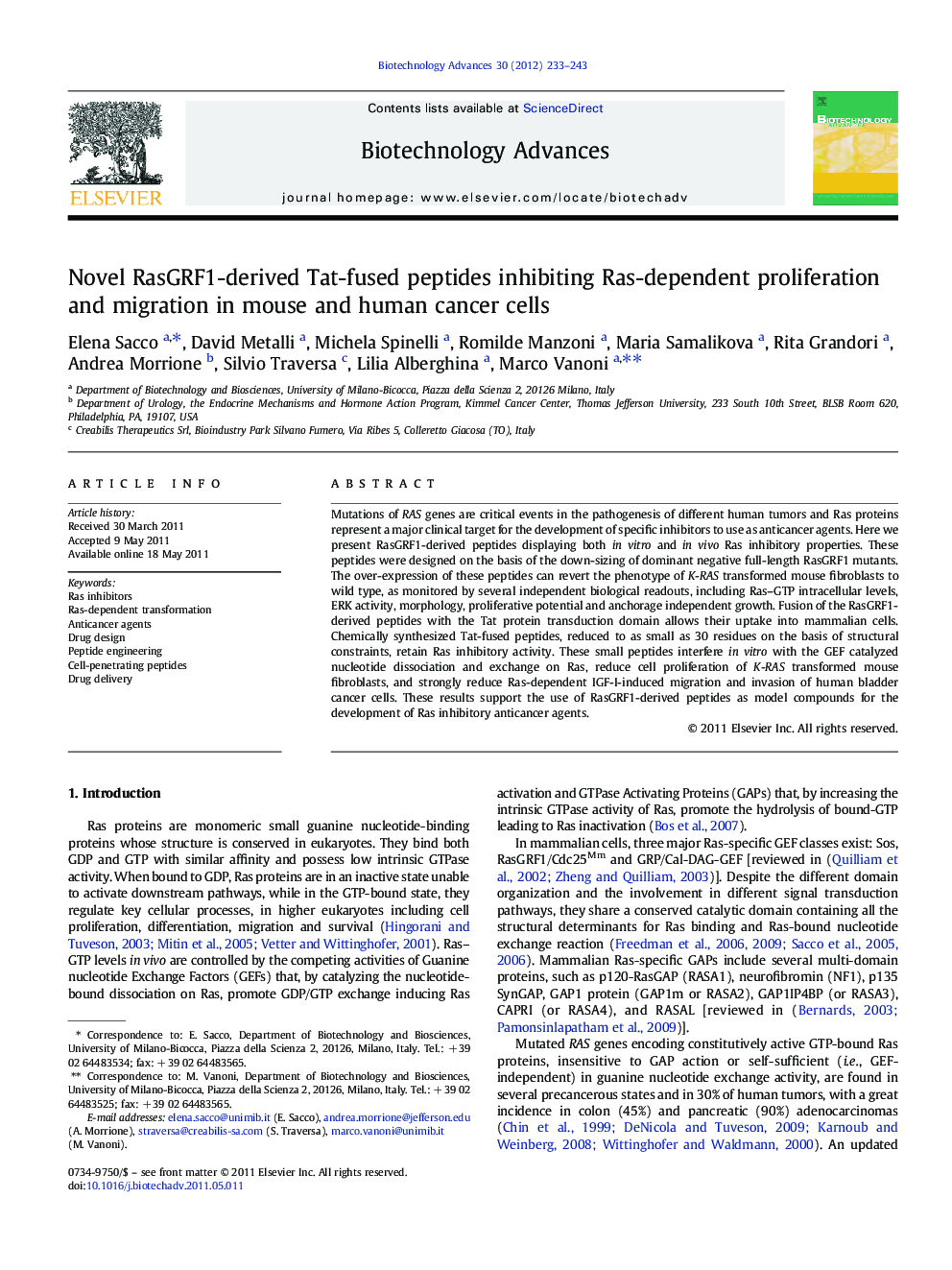| Article ID | Journal | Published Year | Pages | File Type |
|---|---|---|---|---|
| 14598 | Biotechnology Advances | 2012 | 11 Pages |
Mutations of RAS genes are critical events in the pathogenesis of different human tumors and Ras proteins represent a major clinical target for the development of specific inhibitors to use as anticancer agents. Here we present RasGRF1-derived peptides displaying both in vitro and in vivo Ras inhibitory properties. These peptides were designed on the basis of the down-sizing of dominant negative full-length RasGRF1 mutants. The over-expression of these peptides can revert the phenotype of K-RAS transformed mouse fibroblasts to wild type, as monitored by several independent biological readouts, including Ras–GTP intracellular levels, ERK activity, morphology, proliferative potential and anchorage independent growth. Fusion of the RasGRF1-derived peptides with the Tat protein transduction domain allows their uptake into mammalian cells. Chemically synthesized Tat-fused peptides, reduced to as small as 30 residues on the basis of structural constraints, retain Ras inhibitory activity. These small peptides interfere in vitro with the GEF catalyzed nucleotide dissociation and exchange on Ras, reduce cell proliferation of K-RAS transformed mouse fibroblasts, and strongly reduce Ras-dependent IGF-I-induced migration and invasion of human bladder cancer cells. These results support the use of RasGRF1-derived peptides as model compounds for the development of Ras inhibitory anticancer agents.
